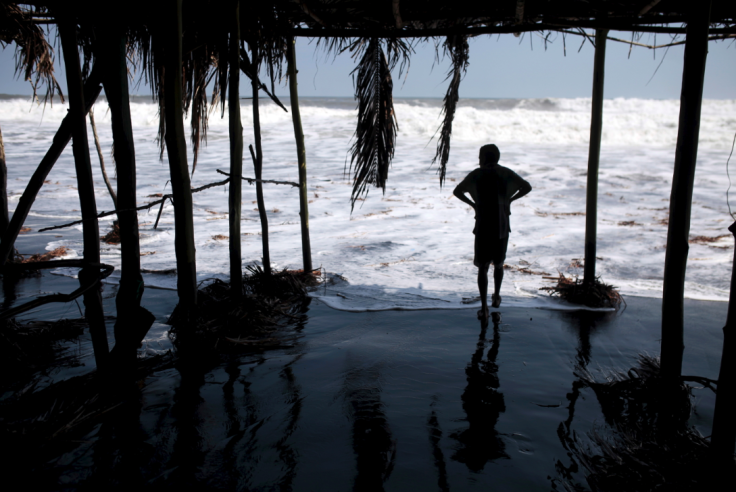Tsunami Warning Issued After 7.4-Magnitude Earthquake Hits Off Papua New Guinea

Update as of 1:00 a.m. EDT: A tsunami threat, following an earthquake Tuesday, to the South Pacific island nation of Papua New Guinea has largely passed, the Pacific Tsunami Warning Center said.
A 7.4-magnitude earthquake that hit the region brought down power lines and damaged walls, authorities reportedly said. A small tsunami also reportedly formed in the harbor of Rabaul, a town near the epicenter, but no widespread damage was caused.
Original story:
A tsunami warning was issued after a 7.4-magnitude earthquake hit near South Pacific island nation of Papua New Guinea, the U.S. Geological Survey wrote. The quake, which occurred in the New Ireland region, had a depth of depth of 63 kilometers (40 miles) and stretched for 6 miles. It hit 130 kilometers (80 miles) south of the town of Kokopo in northeastern Papua New Guinea.
The quake was first listed as 7.5-magnitude, and then downgraded to 7.4, the Associated Press noted.
“Based on the preliminary parameters … hazardous tsunami waves are possible for coasts located within 300 kilometers (186 miles) of the earthquake epicenter,” the Pacific Tsunami Warning Centre wrote.
Susan McGrade, owner of the Rabaul Hotel in Rabaul, told Reuters that the earthquake was felt strongly in the city. She said water splashed out of the swimming pool, yet there weren't signs damage.
If a tsunami hits, it will occur six hours from 9:44 p.m. EDT Monday, or at 3:44 a.m. EDT Tuesday. “Government agencies responsible for threatening coastal areas should take action to inform and instruct any coastal populations at risk in accordance with their own evaluation… procedures and the level of threat,” the PTWC said. “Persons located in threatened coastal areas should stay alert for information and follow instructions from national and local authorities.”
Earthquakes are common for New Guinea since it lies in the Ring of Fire, the sweep of seismic faults in the Pacific Ocean.
Martin Mose, the director of the National Disaster Center, advised people to stay vigilant. "We're just sending a message now to the area for villages along the coast to take extra precautions in case a tsunami is generated," he told the AP.
Waves have not yet been observed and there are no signs of damage, Chris McKee, assistant director Geophysical Observatory in the capital, Port Moresby, told the AP. "The earthquake is offshore and the nearby land areas are fairly sparsely populated," McKee said.
This is a developing story. Check back for updates.
Follow me on Twitter @mariamzzarella
© Copyright IBTimes 2024. All rights reserved.












